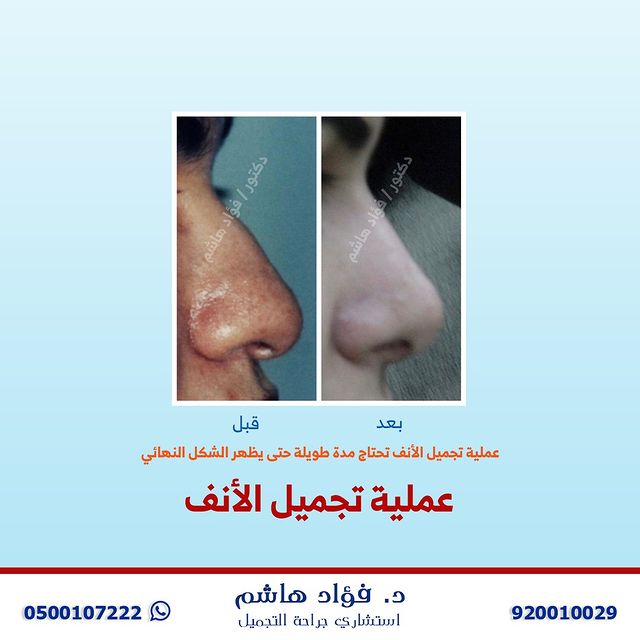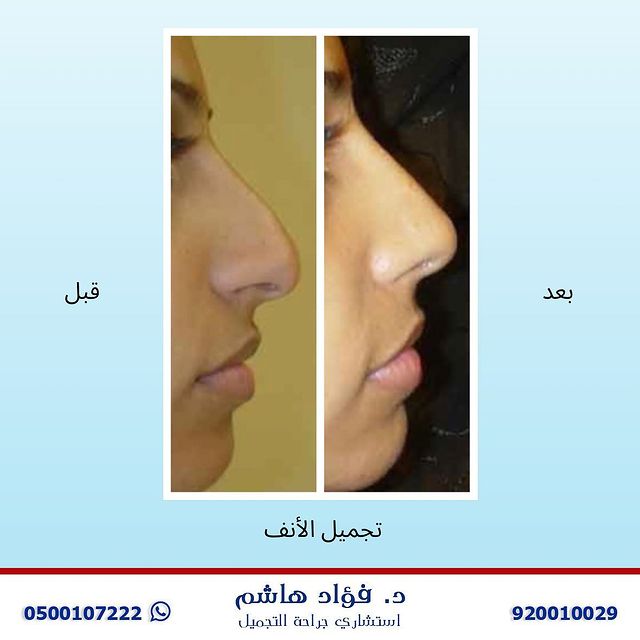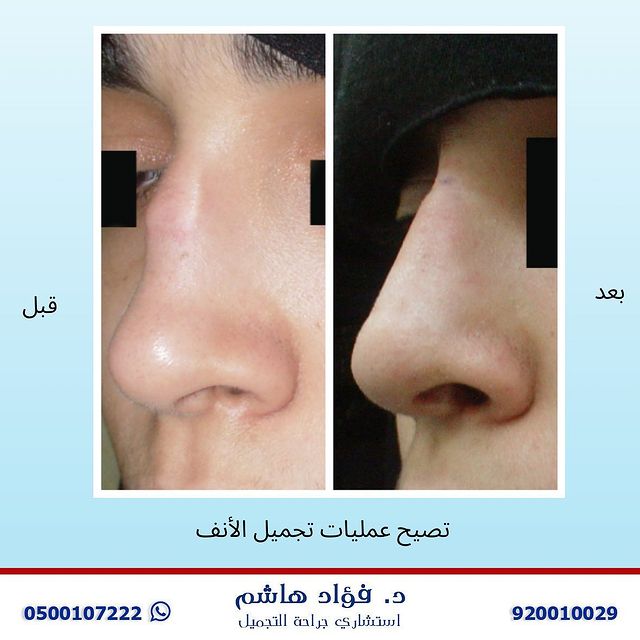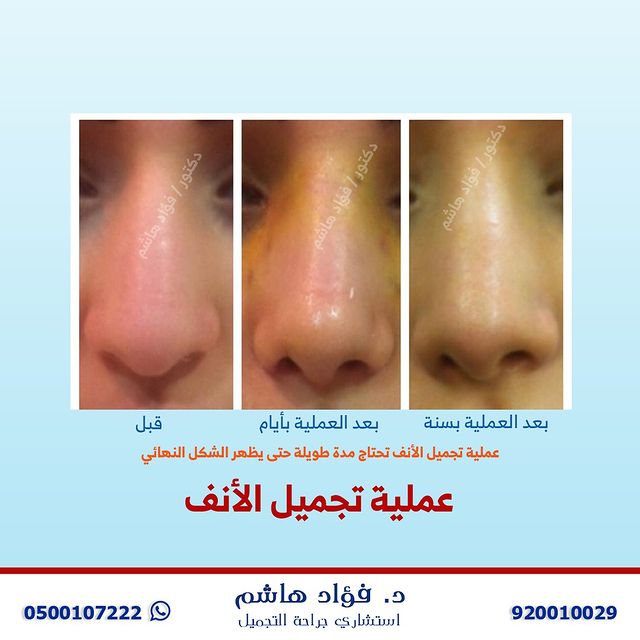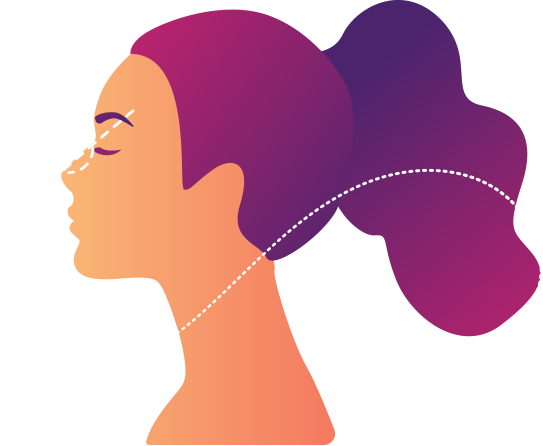
Rhinoplasty
Rhinoplasty, sometimes referred to as a “nose job” or “nose reshaping” by patients, enhances facial harmony and the proportions of your nose. It can also correct impaired breathing caused by structural defects in the nose.
Nose jobs can be done to change how you look or for medical reasons. For example, some people may need surgery to repair a problem with the cartilage that divides one nostril from the other. Others may just want to make their nose smaller or change its shape.
Types of Rhinoplasty:
- Removing a hump on the nose
- Straightening the bridge
- Reshaping the nose’s tip
- Increasing or decreasing the size of the nostrils
- Correcting the nose after an injury
- Opening breathing passages
- Making the nose bigger or smaller
Who is a good candidate for rhinoplasty?
You may be a good candidate for rhinoplasty if:
- Your facial growth is complete
- You are physically healthy
- You don’t smoke
- You have a positive outlook and realistic goals in mind for the improvement of your appearance
What Questions shoul I ask my Plastic Surgeon about Rhinoplasty?
Use this checklist as a guide during your rhinoplasty consultation:
- Are you a board certified?
- Were you specifically trained in the field of plastic surgery?
- How many years of plastic surgery training have you had?
- Do you have hospital privileges to perform this procedure? If so, at which hospitals?
- Am I a good candidate for this procedure?
- What will be expected of me to get the best results?
- Where and how will you perform my procedure?
- What surgical technique is recommended for me?
- How long of a recovery period can I expect, and what kind of help will I need during my recovery?
- What are the risks and complications associated with my procedure?
- How are complications handled?
- How can I expect my nose to look over time?
- What are my options if I am dissatisfied with the cosmetic outcome of my nose surgery?
- Do you have before-and-after photos I can look at for this procedure and what results are reasonable for me?
Food & medications:
Don’t take medicines that have aspirin or ibuprofen (Advil, Motrin IB, others) for two weeks before and two weeks after surgery. These medicines may make you bleed more. Take only the medicines approved or prescribed by your surgeon. Avoid herbal remedies and over-the-counter supplements.
If you smoke or vape, stop. Smoking and vaping can slow healing after surgery and can result in tissue death. You could also get an infection.
Aftercare and Recovery:
How long does it take to recover from rhinoplasty surgery?
It typically takes about two weeks to recover from nose surgery. Your surgeon will discuss how long it will be before you can return to your normal level of activity and work. After surgery, you and your caregiver will receive detailed instructions about your post-operative care, including information about:
- Normal symptoms you will experience
- Normal nose-bleeding for the first 24 hours
- Potential signs of complication
It is vital that you follow all the patient care instructions your surgeon provides. It is also important to know that the amount of time it takes for recovery varies greatly among individuals. You will need to wait for several weeks before you can engage in exercise or athletics.
What can I expect in the early stages of my nose surgery recovery?
- You may need to wear a nasal splint over your nose for support. The splint will protect your nose while you sleep and shield it from accidental bumps. You may also have a small triangular bandage beneath the tip of your nose.
- You will have nasal packing inside your nose for additional support; it acts as an internal splint to hold everything in place and to keep the airway clean and free of crusts. Many patients dislike the idea of anything in their noses, so adjusting to the nasal packing may be difficult. Some surgeons insert a small tube in each airway to allow the patient to breathe more freely when the packing is in place.
- Expect some swelling and bruising and possibly some discomfort. Your face will be puffy, and the areas around your nose and eyes will be bruised and swollen after surgery. Your surgeon may recommend cold compresses to help minimize the swelling and reduce pain. You may need to keep your head elevated and relatively still for the first few days after surgery.
- Your surgeon may prescribe a pain medication to deal with any pain you may experience.
- You will have to limit your activities for a few days to weeks.
What can I expect in the first two weeks?
- All surgical packing within your nose will be removed within four to seven days after surgery.
- The splint and bandages on your nose will be removed in a week to ten days.
- It takes about ten to fourteen days before most of the swelling and bruising improves, but could take three weeks for really “bad” bruising.
- Your return to work or school depends on how much exertion your job or your school activities require. Most normal activities, including exercise, can usually resume within three weeks.
- You should avoid strenuous exercise, straining, bending, and lifting until cleared to do so by your plastic surgeon.
What can I expect after two weeks?
- You may have minor swelling of your nose for up to a year, but it most likely will not be noticeable to others after one month.
- You will have to wait a few months before you can expose your reshaped nose to direct sunlight.
- If your nasal bones were altered, you will have to wait a while before you can wear glasses without proper support, such as tape.

